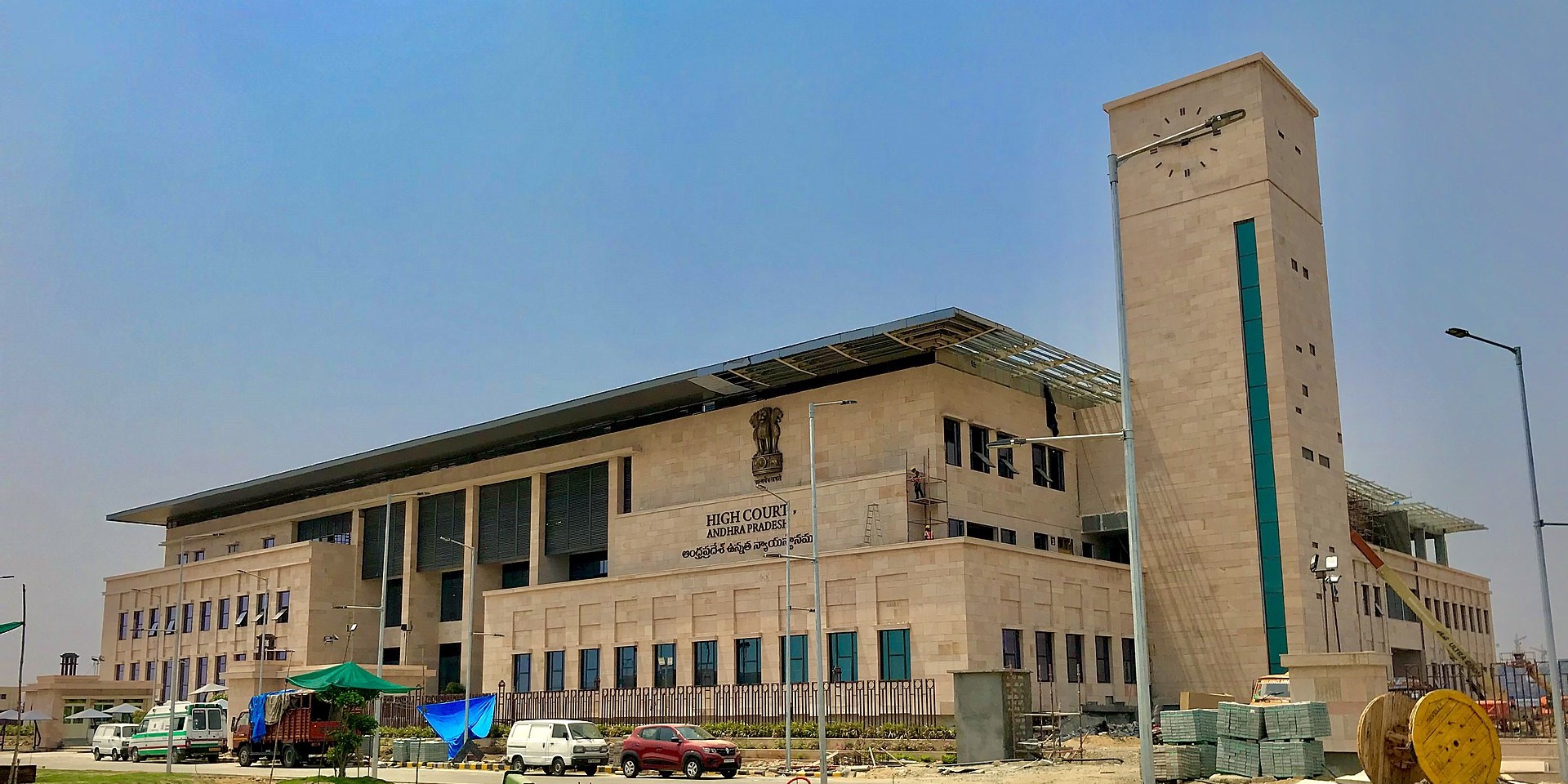Earlier the court said it would hear the government’s plea on setting up the 3 capitals on 23 February, but it did not happen.

Andhra Pradesh High Court. (Creative Commons)
The Supreme Court on Monday, 27 February, posted for hearing on 28 March, the Andhra Pradesh government’s challenge to the state high court’s order on setting up three capitals to house government, legislature and the high court, respectively.
A bench of Justice KM Joseph and Justice BV Nagarathna said that the matter will be taken up for hearing on 28 March upon a mentioning by the state government’s lawyer seeking a hearing of the matter.
The matter for an early listing was mentioned by senior advocate S Niranjan Reddy.
Earlier, on 6 February, the bench had said that it would hear the Andhra Pradesh government’s plea on setting up the three capitals on 23 February, but it did not happen.
The state government along with others had challenged the judgement of the Andhra Pradesh High Court on the proposed three capitals case and sought a stay on the court’s verdict.
The YSR Congress Party-led government had moved the top court on 17 September, 2022, against the high court’s 3 March, 2022, judgement that upheld Amaravati as the only capital of Andhra Pradesh.
The Andhra Pradesh government has contended that the high court’s judgment is an encroachment into the powers of the executive and the legislature.
The Supreme Court in November 2022, had stayed the high court’s directions asking the state government to develop Amaravati’s capital city and capital region within 6 months.
While staying the high court order directing the Andhra Pradesh government to develop the capital city and capital region within 6 months, the bench of Justice Joseph and Justice Nagarathna had said, “Courts cannot become a town planner and Chief Engineer”.
The top court found the directions issued by the high court overstepped the “separation of power” principle.

May 20, 2024

May 20, 2024

May 20, 2024

May 20, 2024

May 19, 2024

May 19, 2024